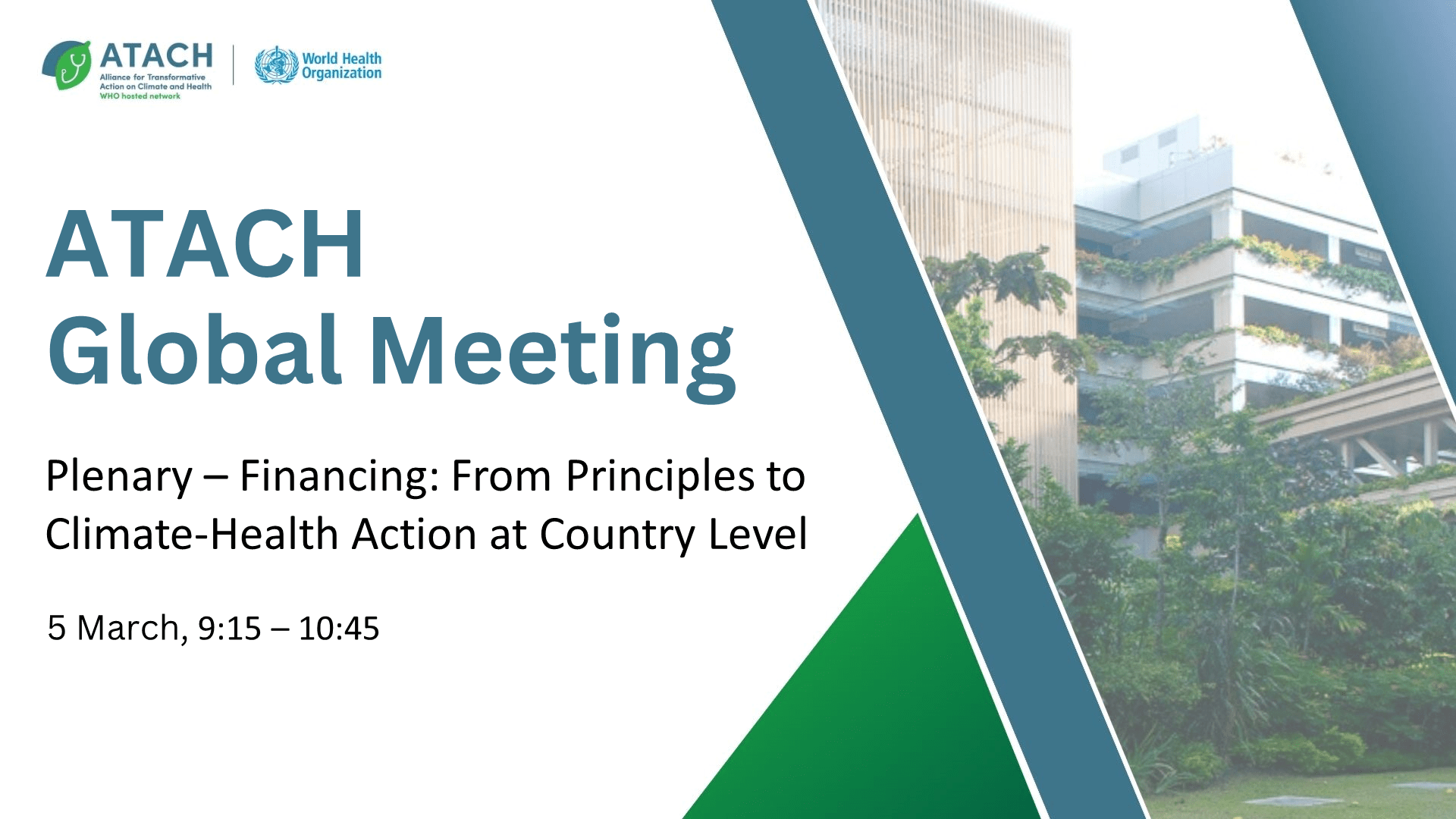Amidst the backdrop of escalating climate change impacts and mounting nutrition challenges, global health leaders converged in Madrid for the Alliance for Transformative Action on Climate and Health (ATACH) Global Meeting.
Held in March 2024 at the Ministerio de Sanidad (Ministry of Health), the conference provided a pivotal platform for stakeholders to chart a course towards integrated solutions.
Co-hosted by the Global Alliance for Improved Nutrition (GAIN) and the World Health Organization (WHO), along with partners including the Food and Agriculture Organization of the United Nations (FAO) and the Scaling Up Nutrition (SUN) Movement, the event profiled the Initiative on Climate Action and Nutrition (I-CAN). This initiative launched by the Government of Egypt during COP27, aims to bridge the gap between climate action and nutrition, fostering collaboration to address the intertwined challenges.
Highlighting the urgency of the issue, recent reports from the Intergovernmental Panel on Climate Change (IPCC) underscored the escalating risks posed by climate change, exacerbating global malnutrition crises. Against this backdrop, the ATACH meeting sought to refine priorities and strategies to accelerate climate change and health implementation, aligning with the outcomes of COP26, COP 277, and COP28.
Stakeholders also delved into the bidirectional relationship between climate change and nutrition, emphasizing the need for integrated approaches across policy, research, and finance. Recent research by I-CAN revealed stark gaps in climate-nutrition integration, with only a fraction of climate-related financing explicitly addressing nutrition concerns.
Country representatives shared perspectives on opportunities for integrating nutrition and climate considerations into national policies. They also brainstormed mechanisms for collaboration and knowledge exchange to accelerate progress in this critical area.
Currently, there are climate change mitigation and adaption efforts initiated by the governments of Ghana and Zambia and non-state actors. These are aimed at building adaptive capacity to protect and preserve human life and wellbeing, infrastructure, livelihoods, and society in general. Need, however, remains for intentional integration of nutrition into climate actions. Participating in the event as an international expert engaged by the World Health Organization (WHO) to assess the links or lack thereof of climate and nutrition actions in Ghana and Zambia, Professor of Public Health at the University of Ghana, Amos Laar shared insights on the opportunities that exist for exploring and exploiting climate-nutrition co-benefits in existing policies.
He noted that leveraging agriculture and food security initiatives serves as a pivotal entry point, while emphasizing sustainable production and eco-tourism could enhance biodiversity and foster climate-smart agricultural practices. Ghana’s climate policies already prioritize climate-resilient agriculture, aligning well with efforts to combat malnutrition.
He added that Ghana’s national nutrition policies also present avenues for integrating climate actions, particularly through commitments aimed at promoting resilience in the country’s food systems. By aligning government plans with climate considerations, there is a clear path to prevent and reduce malnutrition levels by 2023.
He further stated that, integrating climate considerations into food procurement decisions offers an opportunity to explicitly address climate concerns. “By emphasizing environmental management and promoting local procurement, Ghana can optimize sustainability and support local livelihoods, fostering a more resilient and climate-conscious food system overall,” he said.



















































